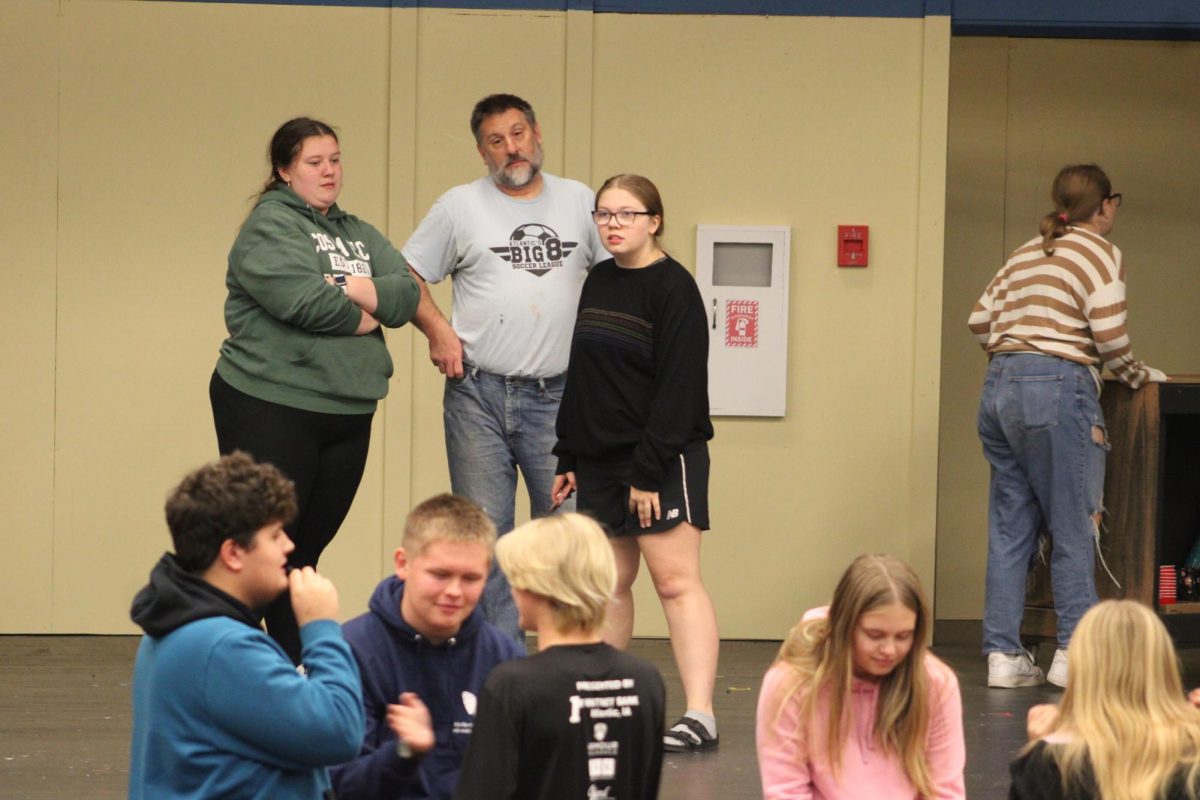AHS Takes On Climate Change
A global crisis gets put into perspective by senior students.

September 30, 2019
Though it is easy for youth to feel as though they can not offer aid during tragic events and situations, one teen, Greta Thunberg, has chosen to disregard such feelings. The Switzerland-raised teen has become a prominent face for climate change and global warming advocacy. Her gripping speeches and passionate attitude has captured the attention of many, including President Donald Trump.
Any student at AHS with social media has seen the posts– ocean levels rising, marine life dying, polar caps melting–the idea that if we don’t change how we live now, we might not be around to change in the future. In Atlantic, we may not be currently feeling the effects of climate change, but that doesn’t mean the event isn’t real. It also doesn’t mean students don’t have strong opinions on the matter.
In a small debacle, seniors Zach McKay and Connor Church looked in-depth into the issue of global warming, expressing their knowledge, opinions, and possible solutions concerning the event. Both seniors immediately agreed on the realness of the concept, pointing towards human pollution as the main cause for the drastic changes in climate and ecosystems. An example of this can be seen in the concept of marine heatwaves. Marine heatwaves have the capability to terminate fish, coral reefs, seabirds, and seagrass, and have doubled since the 1980s. These warmer waters can also produce bacteria that disease oysters and shellfish, and in turn, sickening those who consume them.
Though Church did acknowledge the severity of the issue, he commented on his lack of interest regarding it, claiming that he doesn’t “think about it much,” as he doesn’t see a real solution towards the issue. “I mean humans are going to do what they’re going to do. We aren’t going to be able to stop every single person from living how they’ve lived.”
McKay, also acknowledging the severity, offered much information regarding the subject, and showcased his beliefs towards the issue broadly. “I believe climate change is a global crisis and should take number one priority.”
As for possible solutions, both McKay and Church agreed that it would take a lot of work to reverse the effects of global warming. McKay offered up the idea of the Green Deal, a deal proposed in 2018. This deal “would help cut our emissions down and puts us on renewable energy by 2030.” It involved the replantation of many forests and changing how people live via using reusable products.
Church added that it would be a hard deal to commence, as it would be challenging to make people change their ways of life. “I’m gonna be straight up honest, I think we’re gonna get worse. People are so focused on having their own car and having new technology,” Church said.
Though it may be complicated, it is important for people to understand that if no action is taken to reverse the effects of global warming, Earth could be destroyed by as soon as 2050. Time is running out to stop what the human population has started. We are rapidly approaching a point where global warming will not be reversible.
It may take more effort, time, and money to use reusable products and to change means of transportation, but if humans continue in their ways, we could lose our planet and our lives.








